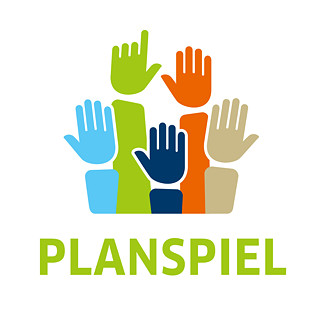“Climate-Neutral City” Simulation game
Then join in! Take part in the international internet-based simulation game "Climate Neutral City"!
The students take on the roles of various interest groups in the fictitious city of Fonta, discuss and negotiate under the leadership of the mayor in their respective national languages, with which measures they can reduce the CO2 emissions of their city by 50% by 2030. After the actual simulation, the students create a three-minute video in German in which they present the measures that the city should implement to the fictitious city parliament.

Simulation Game 2025-2026
The following Goethe-Institutes are supporting participation in this project:
Goethe-Institut Amman, Jordanien
Goethe-Institut Alexandria, Egypt
Goethe-Institut Morocco
Goethe-Institut Riad, Saudi Arabia
Goethe-Institut Tallinn, Estonia
Goethe-Institut Vilnius, Lithuania
Goethe-Institut Warschau, Poland
Goethe-Institut Bangalore und Pune, Indien
Goethe-Institut Beijing
Goethe-Institut Dhaka, Bangladesh,
Goethe-Institut Taipei
Goethe-Institut Hanoi and Ho Chi Minh City, Vietnam
Contact
Do you have any questions?
Please get in touch with the contact persons in the participating countries.
Goethe-Institut Amman
Roqia Al-Shami
roqia.al-shami@goethe.de
Goethe-Institut Alexandria
Heba Hambouta
Heba.Hambouta@goethe.de
Dina Ibrahim
Dina.Ibrahim@goethe.de
Goethe-Institut Morocco
Anna-Maria Gentili
Anna-Maria.Gentili@goethe.de
Goethe-Institut Saudi Arabia
Milicia Stefanovic
Milicia.Stefanovic@goethe.de
Goethe-Institut Estonia
Zoja Kisilenko
Zoja.Kisilenko@goethe.de
Goethe-Institut Vilnius
Jurate Lemke
Jurate.Lemke@goethe.de
Goethe-Institut Warsaw
Garczynski, Piotr
Piotr.Garczynski@goethe.de
Goethe-Institut Bangalore
Ibukunolu Olugbemisola Ajagunna
ibukunolu.ajagunna@goethe.de
Nilakshi Baruah
Nilakshi.Baruah@goethe.de
Goethe-Institut Pune
Shivali Acharya
shivali.gore@goethe.de
Vaishali Dabke
vaishali.dabke@goethe.de
Goethe-Institut Dhaka
Arannya.Mayabee
Arannya.Mayabee@goethe.de
Goethe-Institut Beijing
Martin Fox
Martin.Fox@goethe.de
Goethe-Institut Taipei
Timo Kozlowski
Timo.Kozlowski@goethe.de
Goethe-Institut Hanoi and Ho Chi Minh City
Mara Ruth Wesemüller
mararuth.wesemueller@goethe.de
